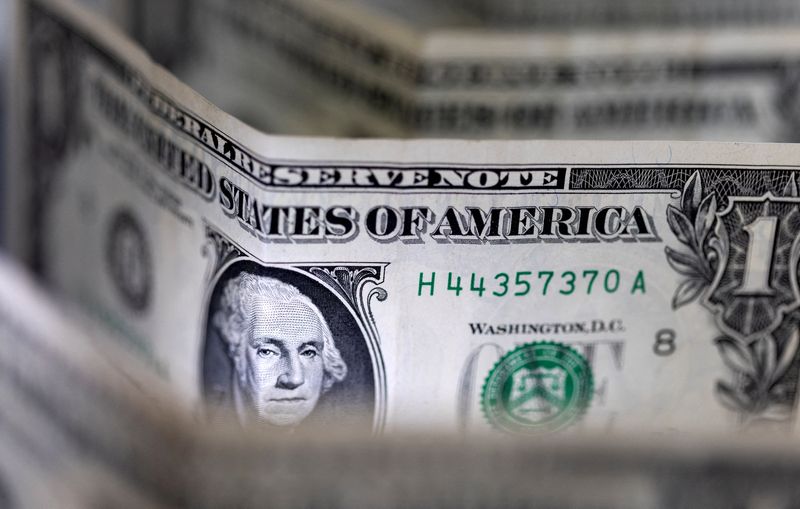By Barani Krishnan
Investing.com -- The dollar’s tumble on expectations of a Federal Reserve rate pivot brought oil to within cents of $100 a barrel on Monday, vindicating market bulls who’ve been beating since last week the drum on triple-digit pricing.
By the close though, crude squandered its midmorning gains and fell further to settle the day in the negative, exhibiting the choppy trade typical before weekly oil inventory data due from the U.S. government. The Weekly Petroleum Status Reports released the last two Wednesdays by the Energy Information Administration, or EIA, have been fairly supportive of longs in the market.
China’s affirmation at the weekend of its commitment to a strict COVID containment approach also offset any bullish fervor emerging from news of recovering Chinese crude imports in the world’s largest importing nation.
Oil bulls, meanwhile, are banking on the dollar to continue falling ahead of this week’s release of the Consumer Price Index, or CPI, by the Commerce Department on Thursday. With inflation having trended at four-decade highs for a year, some think the forthcoming CPI report for October could show a meaningful retreat in price pressures, reflecting the interest rate hike of 375 basis points by the Fed from just 25 points in March.
Economists expect the annual reading for the CPI in October at 8.0%, versus September’s 8.2%, and the monthly rate at 0.6% versus the previous 0.4%. But if both the annual and monthly readings come in sharply lower, the Fed will likely adopt a rate hike of just 50 basis points in December from the four straight increases of 75-bp between June and November. The dollar has been tumbling on that notion.
A weak dollar is supportive for crude and other commodities priced in the greenback as it lowers transaction/acquisition costs for users of the euro and other non-dollar currencies. The Dollar Index, which pits the greenback against the euro, yen, pound, Canadian dollar, Swedish krona and Swiss franc, was at under the key 110 mark on Monday versus Thursday’s three-week high of 113.035.
“You have to think we need two good [inflation] readings for the Fed to scale back its [rate] expectations and give markets the festive cheer they so clearly want,” said Ed Moya, analyst at online trading platform OANDA. “Until then, more choppy and confused trade may be what we get.”
New York-traded West Texas Intermediate, the benchmark for U.S. crude, settled down 82 cents, or 0.9%, at $91.79 a barrel. The session high for the so-called WTI was $93.74.
London-traded Brent, the global benchmark for oil, settled down 65 cents, or 0.7%, at $97.92 after a session peak at $99.55.
Aside from a weakening of hopes for a Fed rate pivot, the call for crude prices to be above $100 is underpinned by expectations of tighter supplies when the European Union's embargo on Russia's seaborne crude exports starts on Dec. 5 — even though refineries worldwide are ramping up output.
“What you’d normally never hear is how somehow the oil industry somehow fixes itself regardless of its structural deficits to supply almost every buyer of the crude that’s needed,” said John Kilduff, partner at New York energy hedge fund Again Capital. “And to those who think the Fed needs to retreat on rate hikes, just ask yourselves this: If oil goes well beyond $100, how in the world would inflation go down meaningfully given the energy input in almost everything we consume? You don’t need a Harvard degree in economics to ask that question.”
